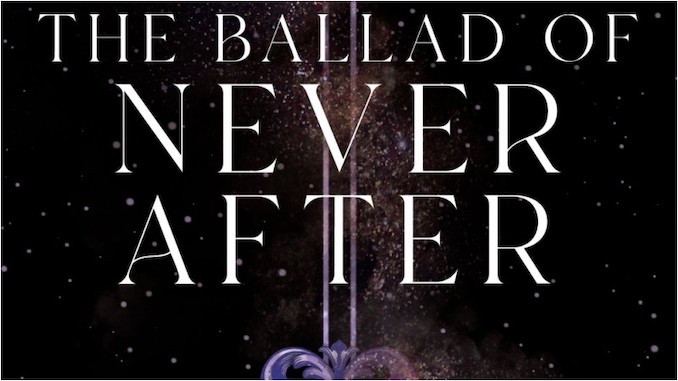The Ballad of Never After: Stephanie Garber’s Charming Fairytale Spinoff Spins Its Wheels

Stephanie Garber’s Caraval series is one of the most popular YA fantasy trilogies in recent years, so it makes sense that audiences everywhere were clamoring for more stories in its universe. The author’s One Upon a Broken Heart spinoff series smartly understands that despite the fact that it is also set in a world of Fates and magic it very much needs to be its own thing, with a separate tone and feel. And, for the most part, it succeeds, crafting a world with much more overt fairytale overtones and a softer feel, rather than Caraval’s sharper edges.
But where series opener Once Upon a Broken Heart arrived like a candy-coated glitter bomb, sequel The Ballad of Never After struggles to find its footing and only occasionally manages to recapture the sweet and whimsical feel of its predecessor. Perhaps it’s simply because this book is very clearly a middle of a trilogy story that needs to accomplish a lot of narrative and emotional table setting in service to the finale that hasn’t technically even been announced yet. But whatever the reason, its one-step-forward, two-steps-back style of storytelling becomes deeply frustrating very quickly.
The Ballad of Never After picks up essentially where its predecessor left off. Sugar sweet heroine Evangeline—and I actually mean that as a compliment, her determination to believe the best of literally everyone is one of the character’s best, most charming traits—still believes in true love. She’s still determined to cure her cursed husband Apollo, to find her happily ever after and grasp it with both hands, and to prevent the Fate known as the Prince of Hearts from opening the Valory Arch, which is either the key to a tremendous power or a murderous creature, depending on what version of the story you believe.
But when Apollo suddenly wakes from his curse under the influence of a new and even deadlier one that compels him to try and kill Evangeline anytime he’s near her, she’ll be forced to work with Jacks again to find the four missing magical arch stones that control the powers of youth, mirth, luck, and truth. Evangeline’s guileless naivete defies credibility here, as she convinces herself she can somehow give Jacks what he wants long enough to somehow find a cure for Apollo but without summoning whatever dark forces may or may not be being held back by the ancient barrier.
Where Once Upon a Broken Heart was a magical confectionery mix of love, messy choices, fairytale quests, curses, and dreams of happy endings, much of The Ballad of Never After is composed almost solely of Evangeline waffling about her feelings for Jacks and whether or not she can trust him. Look, I get it, Evangeline is torn between the perfect prince she’s promised herself to and the messy immortal being that she remains drawn to despite the fact that he keeps deliberately deceiving her. But, at some point, her repeated declarations that she knows she can’t trust Jacks because he keeps betraying and lying to her and, really, she means it this time, cease to have any sort of genuine meaning.
-

-

-

-

-

-

-

-

-

-

-

-

-

-

-

-

-

-

-

-

-

-

-

-

-

-

-

-

-

-

-

-

-

-

-

-

-

-

-

-








































